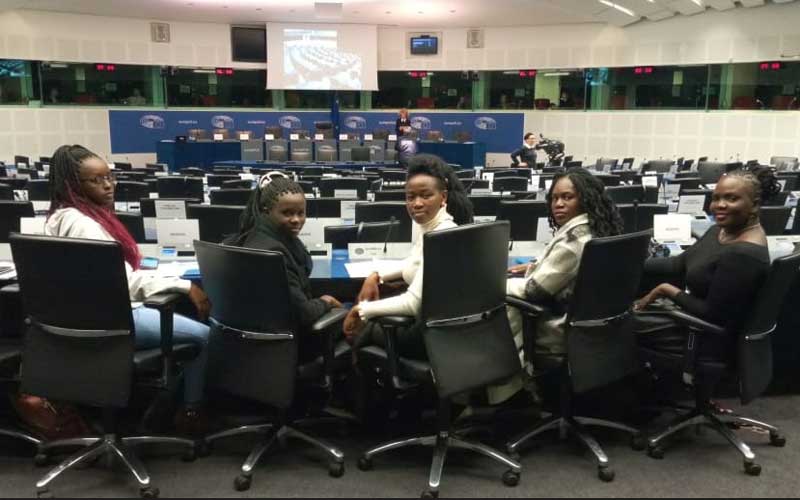×
The Standard e-Paper
Kenya’s Boldest Voice

From left: Macrine Akinyi, Cynthia Awuor, Purity Achieng, Stacy Owino, Dorcas Adhiambo (mentor) at the European Union Parliament at the Sakharov Award Ceremony. They were nominated to the award. [Courtesy]
As the world marked International Day of Zero Tolerance against FGM yesterday, five girls were busy on their computers.